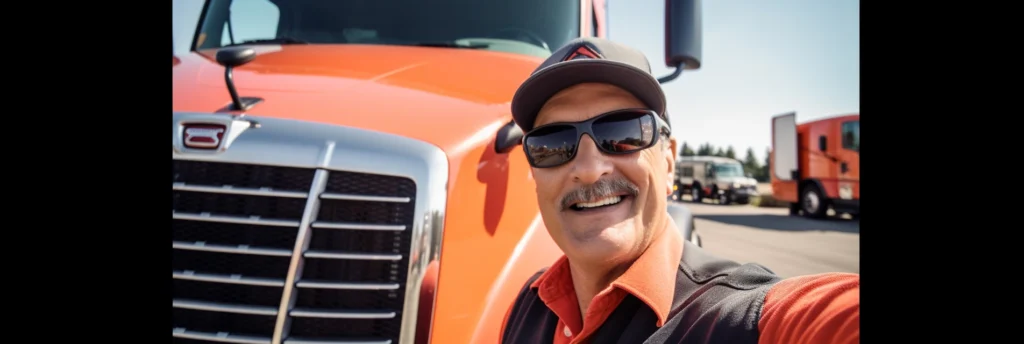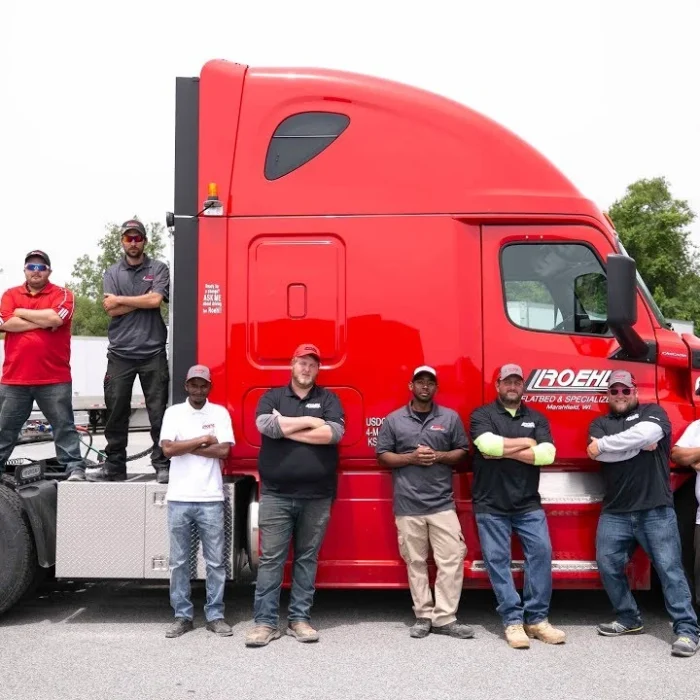Owner Operator Jobs
Owner operator jobs are an attractive career option for experienced truck drivers who wish to take control of their trucking careers by operating their own businesses. As an owner operator, you own and maintain your own truck, manage your business, and choose which jobs or contracts to accept. This level of independence allows you to potentially earn more income, set your schedule, and select the routes and locations that suit your preferences.
In this role, you are responsible for various aspects of the business, including acquiring and maintaining equipment, handling administrative tasks, and managing financials. Owner operators can work independently or lease their services to larger trucking companies. Success as an owner operator requires strong business acumen, adaptability, and a commitment to safety and professionalism.
Before embarking on a career as an owner operator, it’s essential to understand the benefits, challenges, and steps involved in becoming one. The following sections will provide a comprehensive overview to help you determine if this path is right for you.
How To Quickly Start A Trucking Company? – A sure way to get your business off the ground with this ultimate resource.

Benefits of Becoming Owner Operators
Becoming an owner operator offers several advantages that can lead to a more fulfilling and lucrative trucking career. Some of the benefits include:
Increased Earning Potential
As an owner operator, you have the opportunity to earn more income per week as compared to working as a company driver. You can negotiate your rates and select the jobs that pay higher or suit your preferences. By effectively managing your expenses and maintaining a steady flow of loads, you can maximize your profits.
Greater Flexibility and Control
One of the most appealing aspects of being an owner operator is the freedom to set your schedule and choose the routes you want to drive. You can determine when to work and when to take time off, allowing for a better work-life balance. Additionally, you have control over the type of freight you haul and the clients you work with.

Business Ownership
As an owner operator, you are your own boss. You have the opportunity to build and grow your business, developing valuable entrepreneurial skills along the way. Owning your business provides a sense of accomplishment and pride, as well as the potential for long-term financial stability.
How To Buy A Semi Truck? – Full guide to buying your first semi truck.
Truck Customization
Since you own your truck, you can customize it to meet your specific job types, needs and preferences. This might include investing in more comfortable seating, upgrading the sleeper cab, or adding advanced safety features. Customizing your truck can enhance your driving experience and improve your overall job satisfaction.
Tax Benefits
As a self-employed business owner, you may be eligible for certain tax deductions and benefits. These can include deductions for truck maintenance, fuel, and liability insurance, and other business-related expenses. Be sure to consult with a tax professional to understand and maximize your tax benefits as an owner operator.

Challenges of Being an Owner Operator Truck Driver
While becoming an owner operator offers numerous benefits, it also comes with its share of challenges. Being aware of these potential difficulties can help you prepare for and navigate them effectively. Some of the challenges include:
Startup Costs and Financial Risks
Starting your own trucking business as an owner operator requires significant upfront costs, including purchasing or leasing a truck, obtaining necessary permits, and securing insurance. There is also a financial risk involved, as your income depends on your ability to find consistent work and manage your expenses.
How Much Does It Cost To Start A Trucking Company? – $100,000 is enough to kick off your own thing, check this article out and make sure that no hidden cost can bite you by surprise.
Ongoing Expenses
As an owner operator, you are responsible for all costs associated with operating and maintaining your truck, such as fuel, maintenance, repairs, and insurance. These expenses can add up quickly, so it’s essential to manage your finances carefully and plan for unexpected costs.

Administrative Responsibilities
Running your own business means handling various administrative tasks, such as bookkeeping, invoicing, tax filing, and maintaining compliance with industry regulations. These tasks can be time-consuming and may require learning new skills or outsourcing to professionals.
Work-Life Balance
While being an owner operator allows for greater flexibility, it can also lead to long hours and extended periods away from home. Balancing the demands of running your business with your personal life can be challenging, so it’s essential to establish boundaries and prioritize self-care.

How to Become an Owner Operator
Transitioning from a company driver jobs to an owner operator jobs requires careful planning and preparation to succeed. The following steps outline the process of becoming an owner operator and setting yourself up for success:
Gain Trucking Experience
Before becoming an owner operator, it’s essential to gain experience as a professional truck driver. This experience will help you develop essential skills, understand industry regulations, and build a solid foundation for your future business. Aim for at least a couple of years of experience to ensure you are well-prepared for the challenges of running your own trucking business.
Obtain Necessary Licenses and Permits
To become an owner operator, you must hold a valid Commercial Driver’s License (CDL). Additionally, you may need to obtain various permits and registrations, depending on the type of freight you plan to haul and the states you will operate in. This may include a USDOT Number, Motor Carrier (MC) Number, and International Registration Plan (IRP) registration.
You might also benefit from opening your own LLC in you home state.

Choose the Right Equipment
Selecting the appropriate truck and equipment for your business is essential. Consider factors such as fuel efficiency, maintenance costs, and resale value when choosing a truck. It’s also important to consider the type of freight you plan to haul and any specialized equipment that may be required.
Secure Financing
Obtaining the necessary funds to start your owner operator business can be challenging. Options for financing include personal savings, bank loans, equipment leasing, or financing through a truck dealership. It’s essential to carefully evaluate your options and choose the financing method that best suits your needs and financial situation.
Obtain Insurance Coverage
As an owner operator truck driver, you’ll need to secure adequate insurance coverage for your truck, cargo, and liability. Shop around for the best rates and coverage options, and consult with an insurance agent who specializes in the trucking industry for guidance.

Finding Loads as Owner Operators
Securing a consistent flow of work is crucial for the success of your owner operator business. Finding loads can be challenging, particularly when starting out, but there are various resources and strategies to help you find the right opportunities. Here are some tips for finding loads as an owner operator truck driver:
Build Relationships with Brokers and Shippers
Cultivating strong relationships with brokers and shippers can help you secure consistent work. Attend industry events, join online forums, and participate in local trucking associations to network and build connections. Providing excellent service, maintaining open communication, and adhering to agreed-upon delivery schedules can help you foster long-term relationships with these partners.
Utilize Load Boards
Load boards are online platforms that connect carriers with shippers and brokers who have freight that needs to be transported. Some popular load boards include DAT, Truckstop.com, and 123Loadboard. While many load boards require a subscription, there are also free options available. Keep in mind that competition on load boards can be fierce, so it’s essential to be proactive and responsive when pursuing these opportunities.
Especially if you a driving a large straight truck you’ll be using any load board you can find daily, if you don’t have a dispatcher, looking after you full time.

Consider Working with a Dispatch Service
A dispatch service can help you find loads by connecting you with shippers and brokers who have available freight. Dispatchers typically work on a commission basis, meaning they earn a percentage of the revenue for each load they find for you. While this can be a convenient way to find work, it’s essential to carefully evaluate the costs and benefits of working with a dispatch service to ensure it’s the right fit for your business.
As an owner operator steady pay is not a reality for you. High risk, high rewards role that is not bonded to any contract. You become the employer and employee at the same time. Even if you get paid from each load you don’t have the security as a regional company driver.

Managing Your Owner Operator Business
Effectively managing your owner operator truck driver business is crucial to ensuring its long-term success and profitability. From financial management to maintaining compliance, there are several aspects to consider. Here are some essential tips for managing your owner operator jobs:
Maintain Accurate Financial Records
Keeping detailed financial records is essential for tracking your income and expenses, planning for the future, and filing taxes. Utilize accounting software, such as QuickBooks or FreshBooks, to help you manage your finances efficiently. Accurate record-keeping can also help you identify areas for improvement and make more informed decisions about your business.
Plan for the Unexpected
Unexpected expenses, such as truck repairs or sudden drops in demand, can have a significant impact on your bottom line. Create an emergency fund to help you weather these financial challenges and ensure the stability of your business. Regularly contributing a portion of your income to this fund can help you prepare for unforeseen circumstances.
Stay Compliant with Industry Regulations
As an owner operators, you are responsible for maintaining compliance with all relevant industry regulations, including hours of service, vehicle maintenance, and safety standards. Stay up-to-date with any changes in regulations and implement policies and procedures to ensure compliance in your operations. Non-compliance can result in fines, penalties, or even loss of your operating authority.
Implement a Maintenance Schedule
Regular preventive maintenance is essential for keeping your truck in optimal condition and minimizing downtime. Develop a comprehensive maintenance schedule that includes routine inspections, oil changes, tire rotations, and other necessary services. By staying proactive with maintenance, you can reduce the likelihood of costly breakdowns and extend the life of your equipment.

Invest in Time Management
Owner operators, you are responsible for managing various aspects of your business, from finding loads to handling administrative tasks. Effective time management is critical to ensuring you can balance these responsibilities while still maintaining a healthy work-life balance. Create a daily schedule, set priorities, and utilize productivity tools to help you stay organized and efficient.
Network and Build Relationships
Building strong relationships within the trucking industry can lead to new opportunities, valuable insights, and ongoing support. Attend industry events, join trucking associations, and participate in online forums to connect with others in your field. These relationships can help you stay informed, find new clients, and share best practices for managing your business.
Continuously Improve and Adapt
The trucking industry is constantly evolving, and it’s essential to stay adaptable and continuously improve your business. Regularly evaluate your operations, identify areas for growth or improvement, and implement changes as needed. Stay informed about industry trends, technological advancements, and emerging opportunities to ensure your business remains competitive. Do not stay around with dry van for a long time, diversify and work to begin delivering more complicated loads, that pay a premium.
By implementing these strategies and maintaining a proactive approach to managing your owner operators business, you can set your team and yourself up for long-term success in the trucking industry.

Common Questions
What company pays the most for owner operators?
Owner operators work as a company, however they can split share with a dispatching service. Most of the times its somewhere around 90/10 split from the total gross.
Is being a owner-operator worth it?
Sure, owner operators make the highest salaries out of all types of truck driving jobs, yet they do not have the security of bad economic storms and rely heavily on the spot market.
What is the highest owner-operator salary?
During a good market, owner operators are able to gross $15,000 weekly working with overtime. Taking home $5,000 to $6,000 weekly. Close to $150,000 salary.
How do Owner Operators find loads?
They are either negotiating loads with brokers themselves or work with a dispatching service that does the negotiation for the owner operator.







